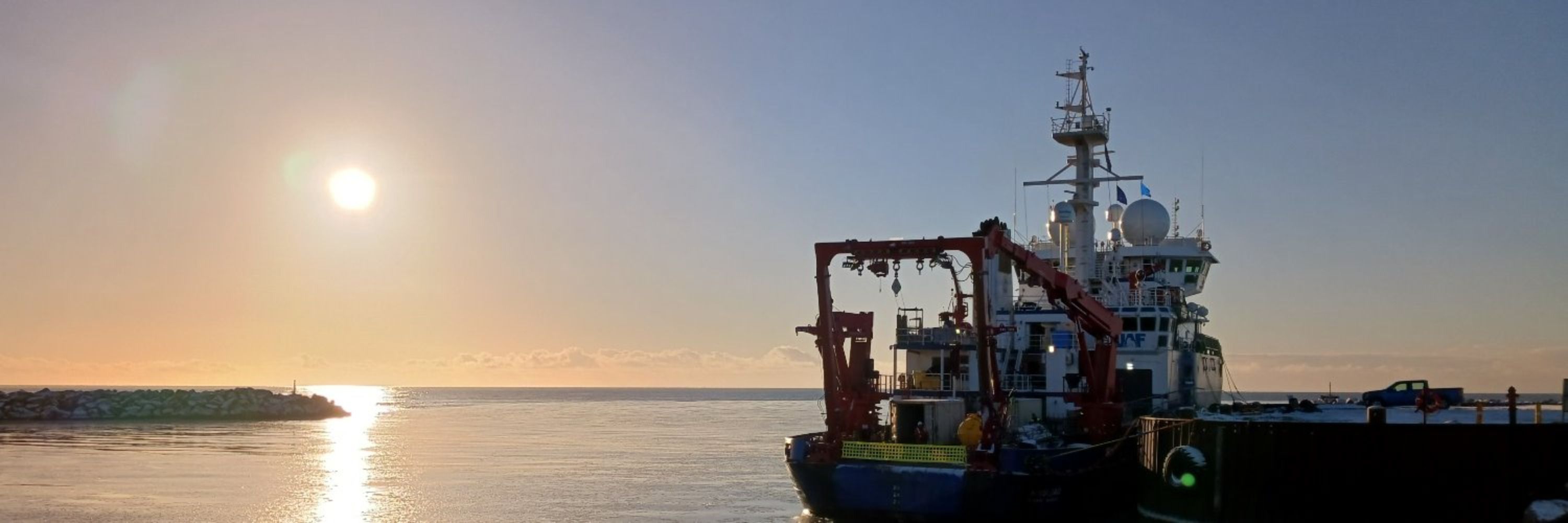
This would not have been possible without the many friends and colleagues who accompanied, taught, helped, and advised me during this journey.
@vliz.be is recruiting a Data Engineer to work in a wide-ranging role to help coordinate global SOCAT activities.
Full details: vliz.be/en/jobs/vliz...

@vliz.be is recruiting a Data Engineer to work in a wide-ranging role to help coordinate global SOCAT activities.
Full details: vliz.be/en/jobs/vliz...
After the big global jump in 2023/24, SSTs are now back at below pre-jump levels in November (climatereanalyzer.org/clim/sst_dai...).
I tried to unpack this in the thread that is linked here 👇
bsky.app/profile/did:...
After the big global jump in 2023/24, SSTs are now back at below pre-jump levels in November (climatereanalyzer.org/clim/sst_dai...).
I tried to unpack this in the thread that is linked here 👇
bsky.app/profile/did:...
After the big global jump in 2023/24, SSTs are now back at below pre-jump levels in November (climatereanalyzer.org/clim/sst_dai...).
Climate surprise or expected? What role does climate variability play? Let’s try to unpack 👇

After the big global jump in 2023/24, SSTs are now back at below pre-jump levels in November (climatereanalyzer.org/clim/sst_dai...).
Climate surprise or expected? What role does climate variability play? Let’s try to unpack 👇
This isn’t ‘dialogue’; it’s the industry responsible for the crisis hijacking the negotiations meant to stop it
If this doesn’t make you furious, you’re not paying attention
www.theguardian.com/environment/...

This isn’t ‘dialogue’; it’s the industry responsible for the crisis hijacking the negotiations meant to stop it
If this doesn’t make you furious, you’re not paying attention
www.theguardian.com/environment/...
We find an observational constraint implying more future global ocean heat uptake, cloud feedback, and warming than the CMIP6 mean.
This contrasts with previous estimates based on past warming trends.
🔗 esd.copernicus.org/articles/16/...

www.egu.eu/news/1505/an...
www.egu.eu/news/1505/an...
We find an observational constraint implying more future global ocean heat uptake, cloud feedback, and warming than the CMIP6 mean.
This contrasts with previous estimates based on past warming trends.
🔗 esd.copernicus.org/articles/16/...

We find an observational constraint implying more future global ocean heat uptake, cloud feedback, and warming than the CMIP6 mean.
This contrasts with previous estimates based on past warming trends.
🔗 esd.copernicus.org/articles/16/...
So here is the post about this paper, which was published today, and highlights how the deep ocean impacts future atmospheric and ocean warming.
We also show that future warming might be underestimated by past studies!
Linus & I developed the idea during Linus research visit with me at @whoi.edu and turned it then into this paper:
esd.copernicus.org/articles/16/...

So here is the post about this paper, which was published today, and highlights how the deep ocean impacts future atmospheric and ocean warming.
We also show that future warming might be underestimated by past studies!
Linus & I developed the idea during Linus research visit with me at @whoi.edu and turned it then into this paper:
esd.copernicus.org/articles/16/...

Linus & I developed the idea during Linus research visit with me at @whoi.edu and turned it then into this paper:
esd.copernicus.org/articles/16/...
For a long time, the 🌊 ocean surface was warming at a slower 🐌 rate but the warming rate appears to have caught up 🐇.
➡️ In our study about the jump in SSTs, we also estimated a 0.27°C per decade warming of global SSTs (www.nature.com/articles/s41...)
For a long time, the 🌊 ocean surface was warming at a slower 🐌 rate but the warming rate appears to have caught up 🐇.
➡️ In our study about the jump in SSTs, we also estimated a 0.27°C per decade warming of global SSTs (www.nature.com/articles/s41...)
www.nature.com/articles/d41...
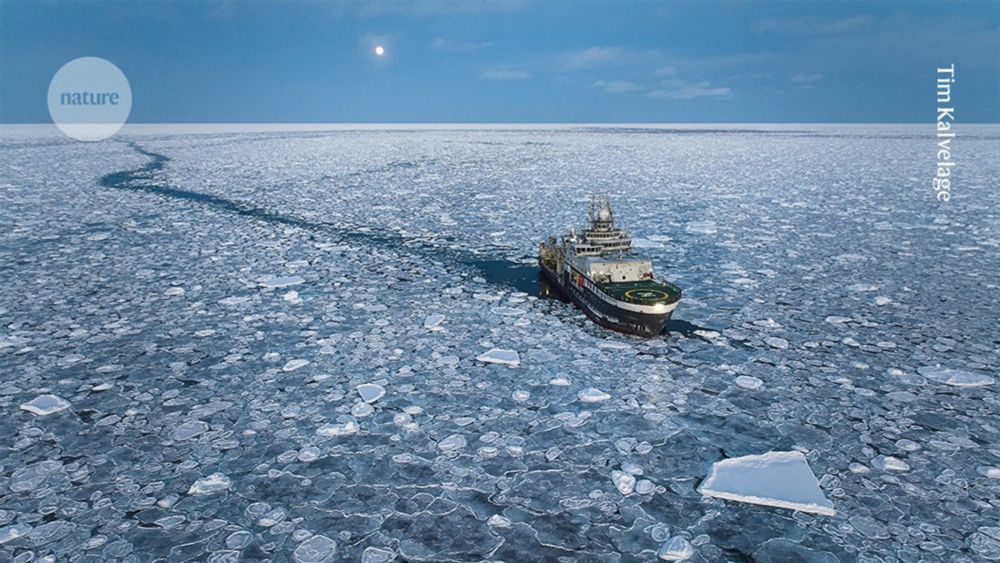
www.nature.com/articles/d41...
(1) Warming stripes for atmosphere and ocean
(2) Climate indicators (adding land humidity for 2024)
(3) UK climate indicators (adding some 2024 data)
ed-hawkins.github.io/climate-visu...
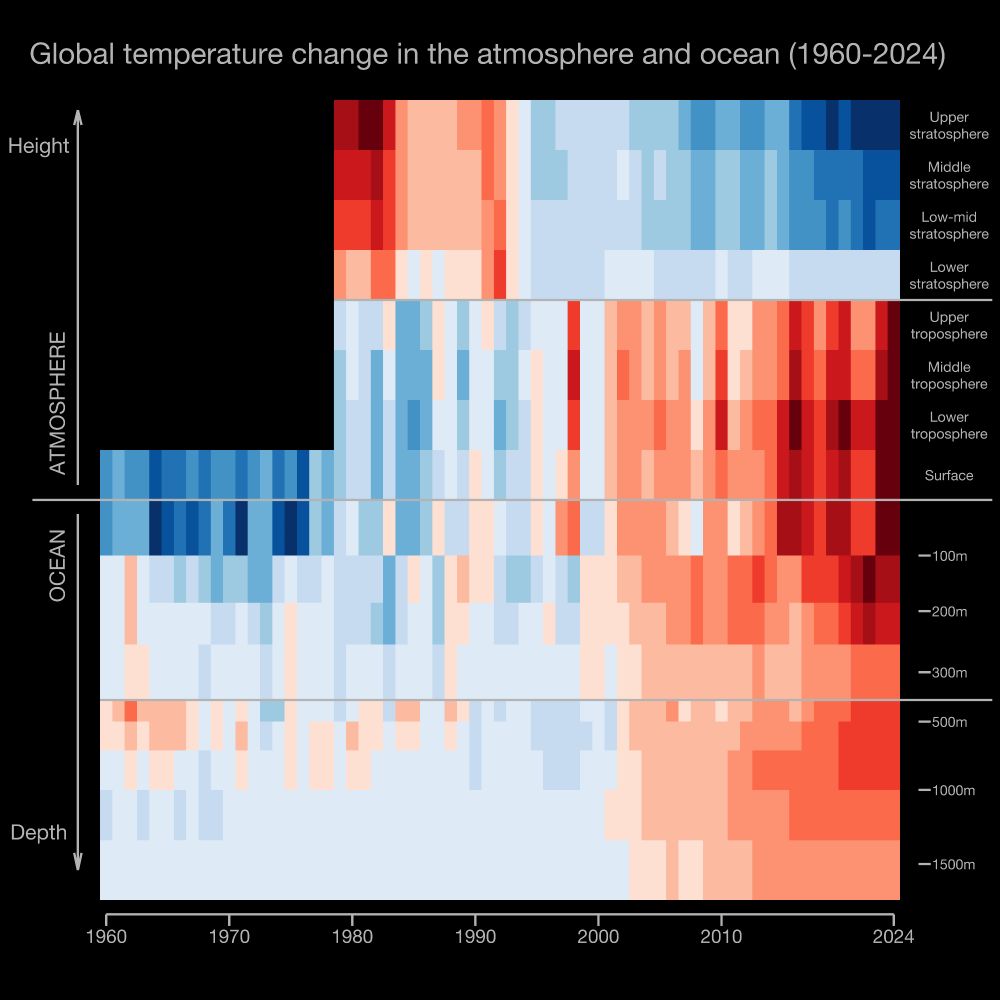
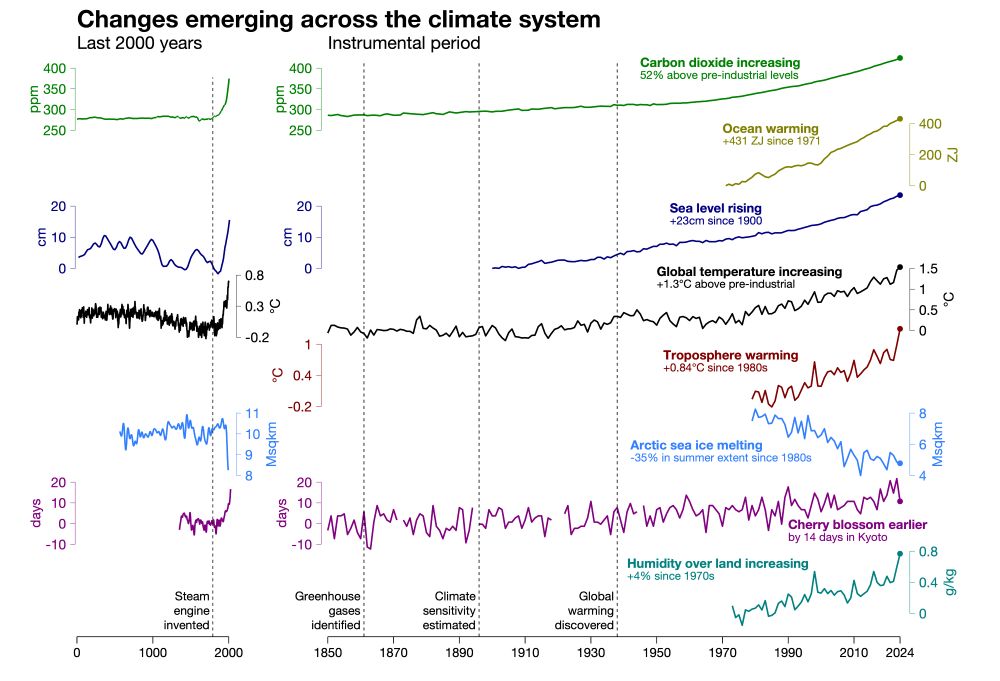
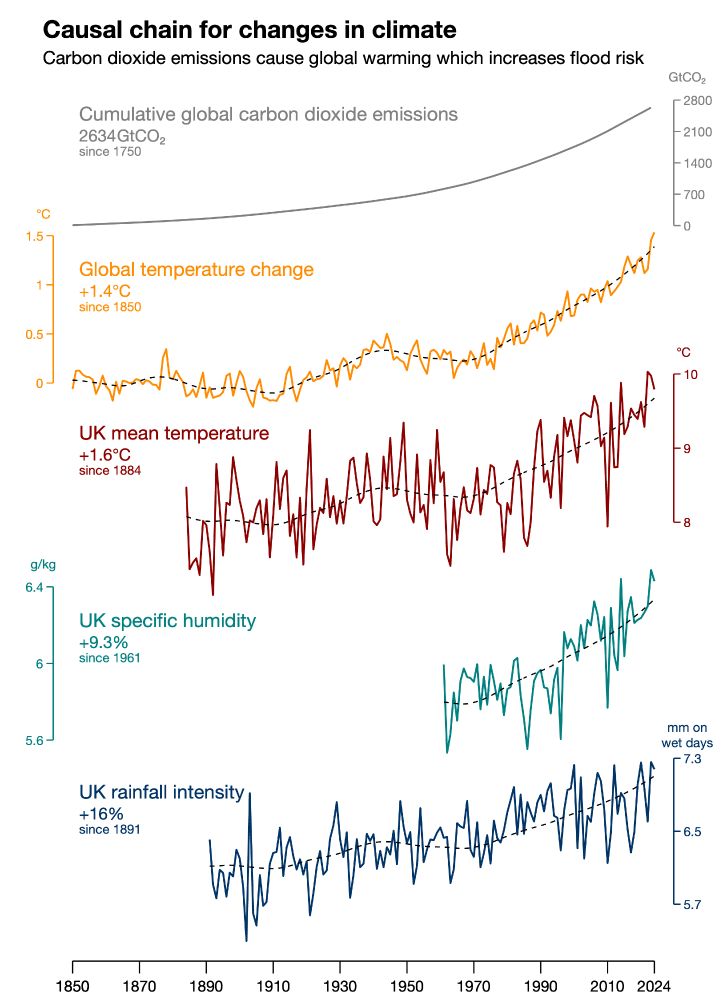
(1) Warming stripes for atmosphere and ocean
(2) Climate indicators (adding land humidity for 2024)
(3) UK climate indicators (adding some 2024 data)
ed-hawkins.github.io/climate-visu...
www.nature.com/articles/s43...
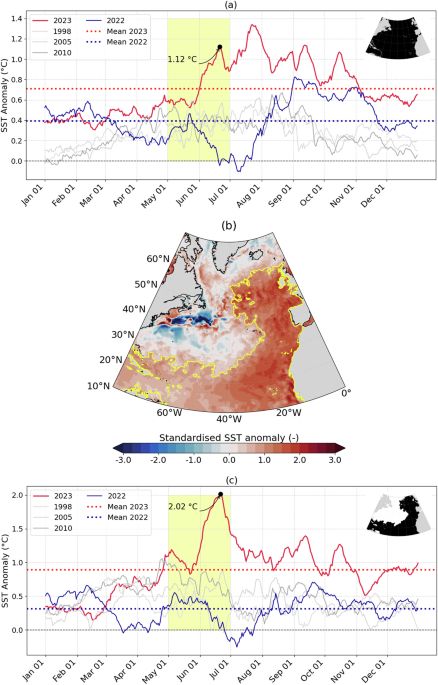
www.nature.com/articles/s43...
"...the record-shattering jump in surface ocean temperatures in 2023–2024 was an extreme event after which surface ocean temperatures are expected to revert to the expected long-term warming trend."
#TruthIsBadEnough
(h/t @flowinguphill.bsky.social)
Is it true that climate models cannot simulate such SST jumps? What is common to such jumps? How will SSTs evolve over the next months and years? Are we in uncharted territory? More from our recent study in Nature is here👇
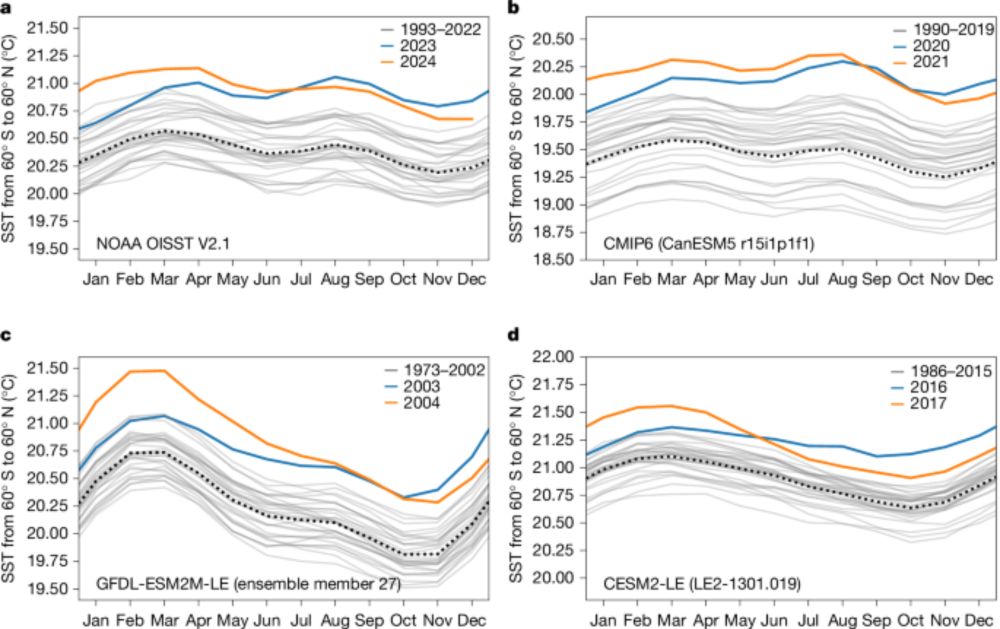
"...the record-shattering jump in surface ocean temperatures in 2023–2024 was an extreme event after which surface ocean temperatures are expected to revert to the expected long-term warming trend."
#TruthIsBadEnough
(h/t @flowinguphill.bsky.social)
It’s so incredibly sad that this is even necessary. But there is clearly will to act.


Here’s a short thread responding to Stefan Rahmstorf’s recent comments on Science in Action (BBC) 🌊
Here’s a short thread responding to Stefan Rahmstorf’s recent comments on Science in Action (BBC) 🌊
Simone Le Chevere:
Evaluation of the interior ocean ventilation of biogeochemical tracers in a global ocean model using observation-based metrics
Thursday, 16:48–16:58, Room 1.34
#EGU25
@awi.de @erc.europa.eu #OceanPeak
Simone Le Chevere:
Evaluation of the interior ocean ventilation of biogeochemical tracers in a global ocean model using observation-based metrics
Thursday, 16:48–16:58, Room 1.34
#EGU25
@awi.de @erc.europa.eu #OceanPeak
🌊 Come have a chat now and before 4pm at X4.37, I have cookies!
🗣Additionally I now have a last-minute talk at 17:43 today in room 1.34 in the same session

🌊 Come have a chat now and before 4pm at X4.37, I have cookies!
🗣Additionally I now have a last-minute talk at 17:43 today in room 1.34 in the same session
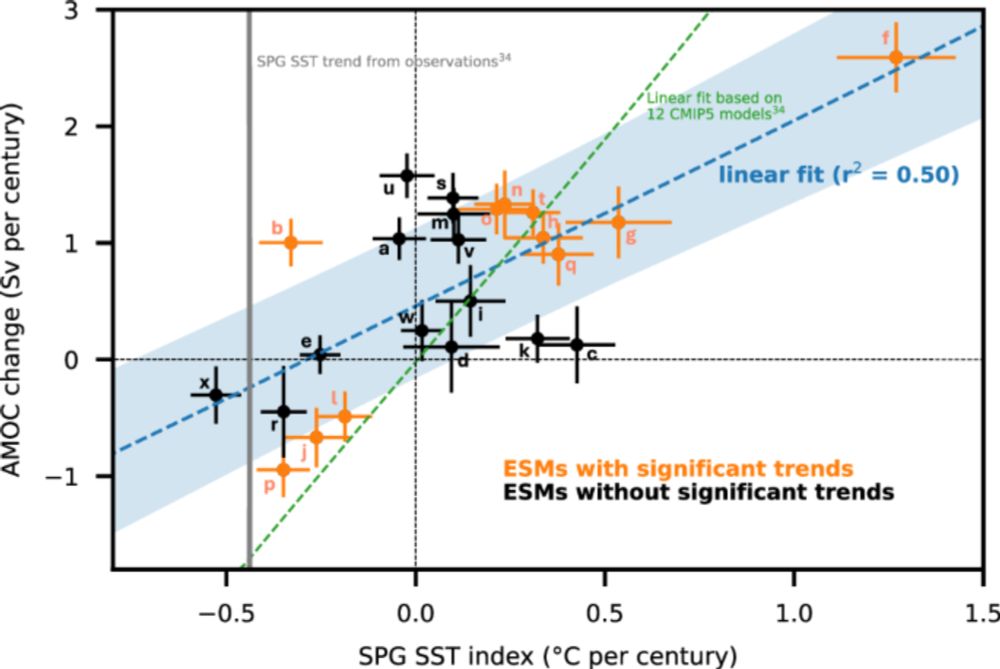
I am very grateful for this recognition about my work on the ocean carbon cycle, ocean biogeochemistry, earth system modeling, ocean-climate interactions, climate projections, and physical oceanography.

I am very grateful for this recognition about my work on the ocean carbon cycle, ocean biogeochemistry, earth system modeling, ocean-climate interactions, climate projections, and physical oceanography.
Congrats to @tatianailyina.bsky.social for receiving the Fridtjof Nansen Medal and @polarocean.bsky.social for the Outstanding ECS Award for their outstanding work in oceanography👏 Truly great scientists!
Check out the interviews:
bit.ly/3ScAwQp
@egu.eu

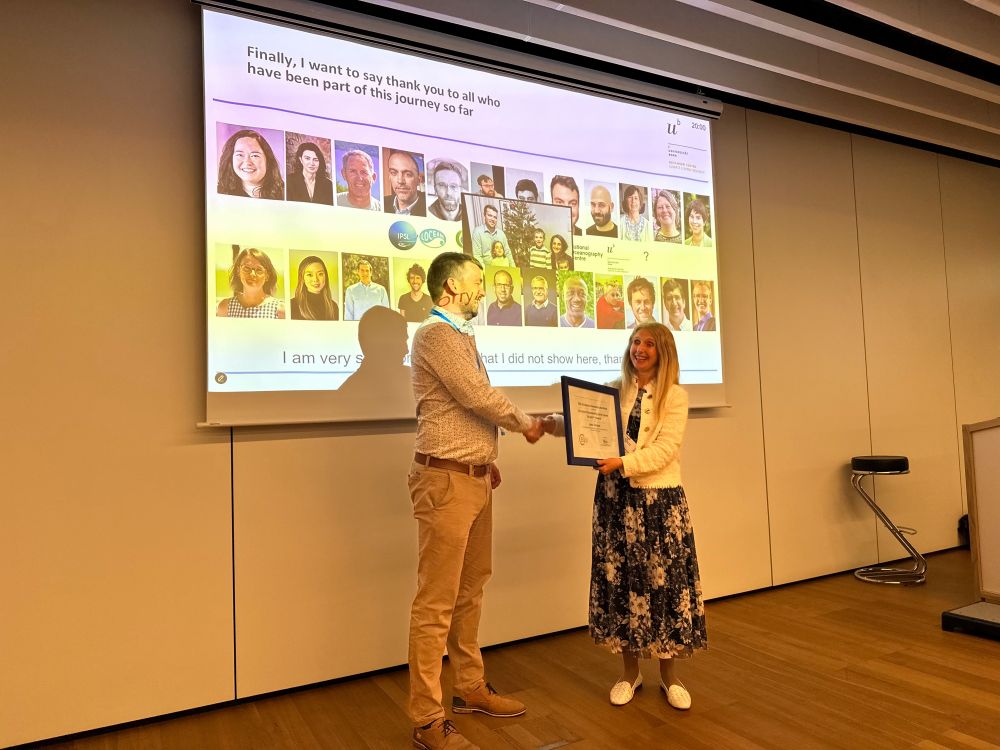
Congrats to @tatianailyina.bsky.social for receiving the Fridtjof Nansen Medal and @polarocean.bsky.social for the Outstanding ECS Award for their outstanding work in oceanography👏 Truly great scientists!
Check out the interviews:
bit.ly/3ScAwQp
@egu.eu
It is about my past, present and future science and also being a parent in academia!
If you want to hear more, please come to my medal lecture tomorrow: meetingorganizer.copernicus.org/EGU25/sessio...
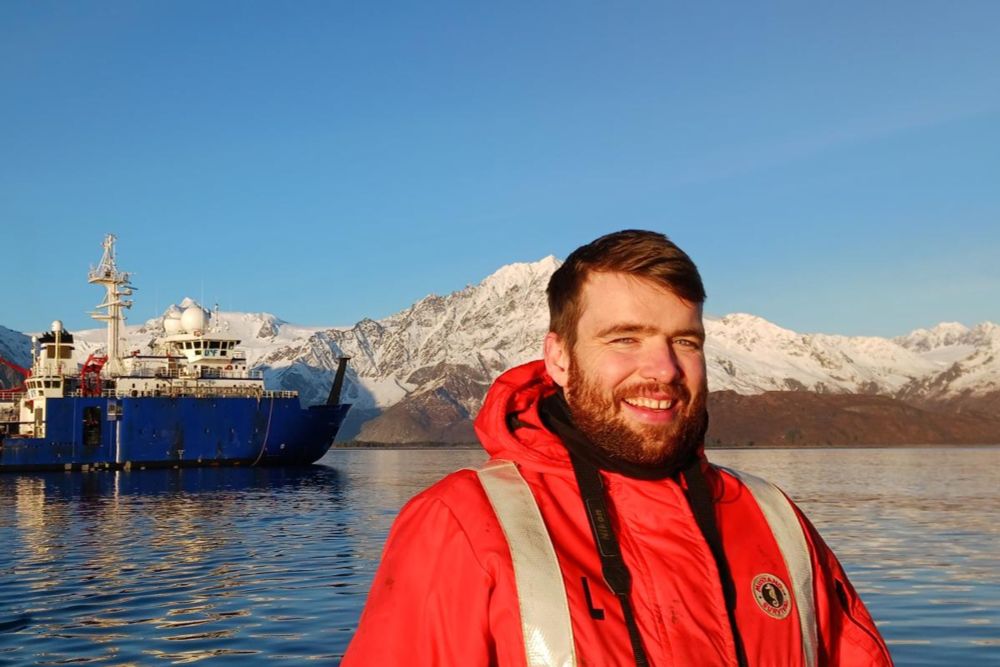
It is about my past, present and future science and also being a parent in academia!
If you want to hear more, please come to my medal lecture tomorrow: meetingorganizer.copernicus.org/EGU25/sessio...


